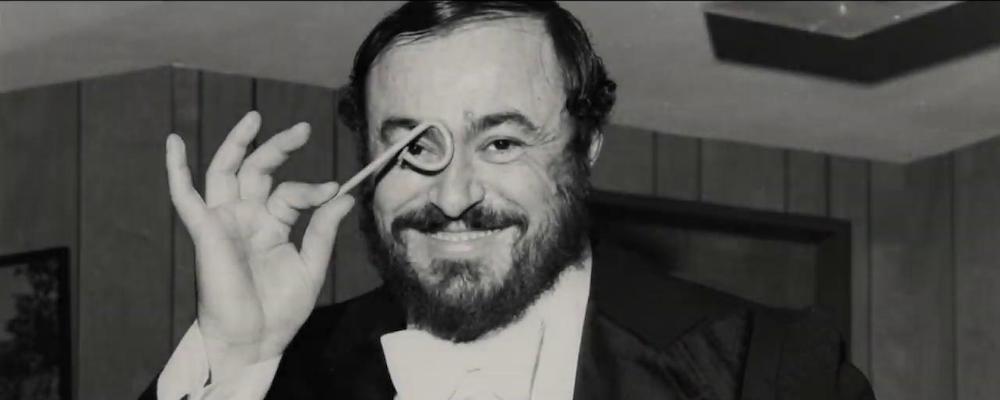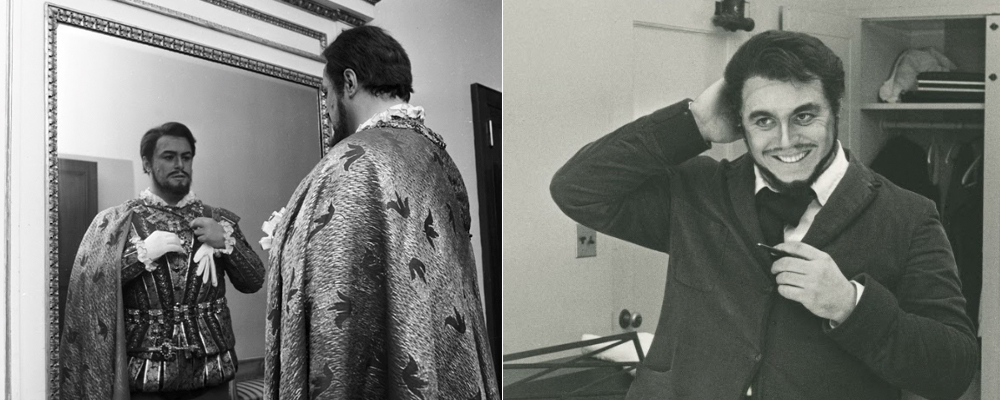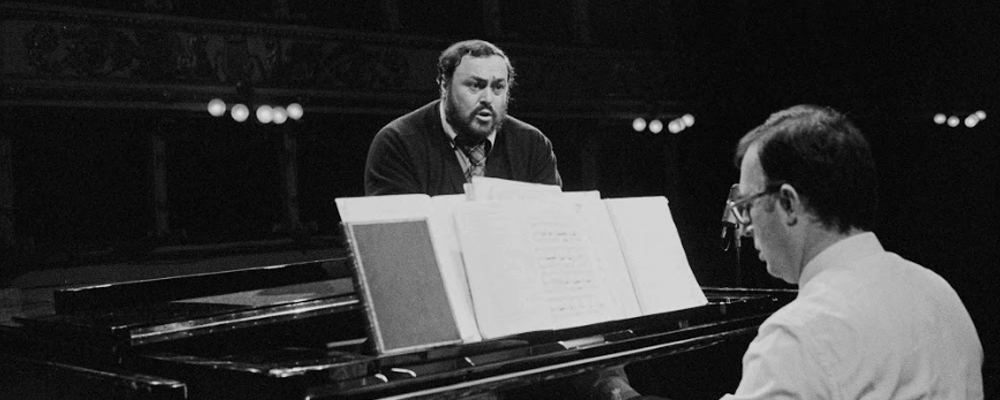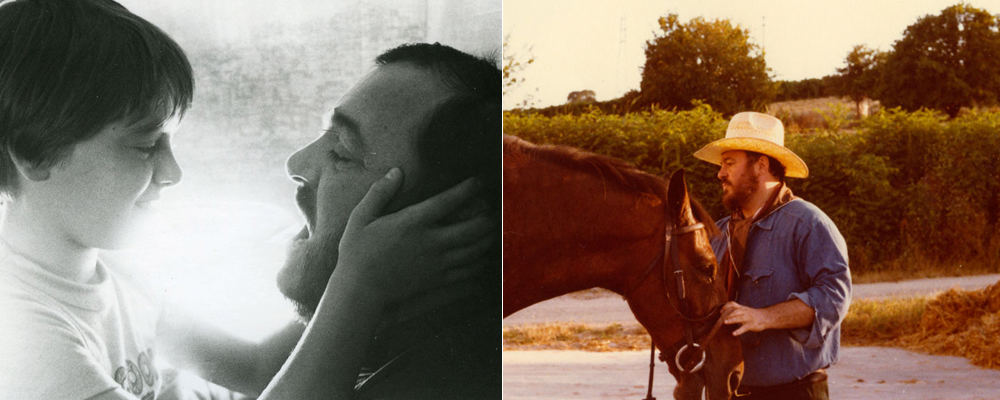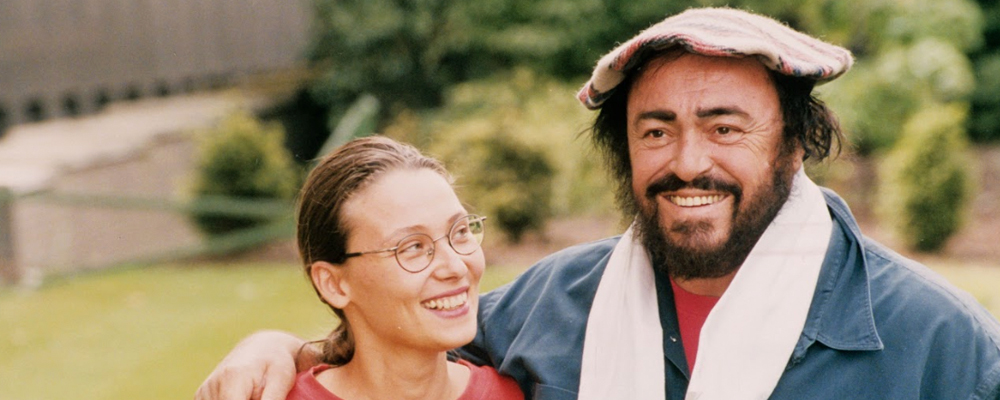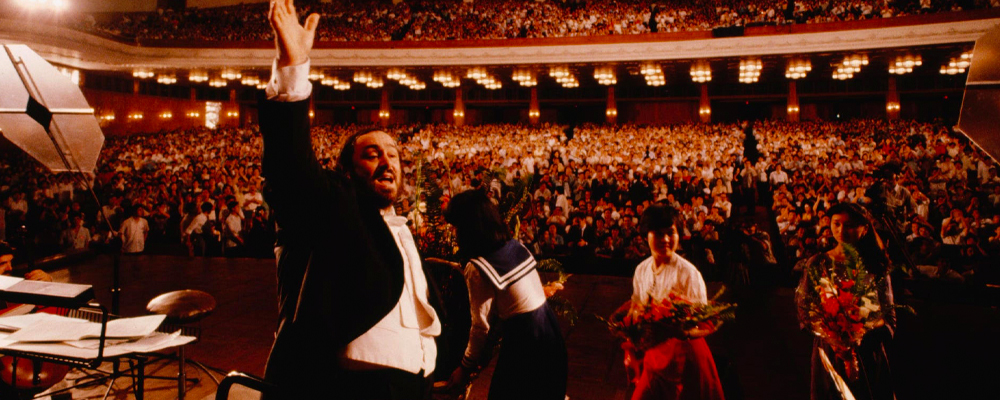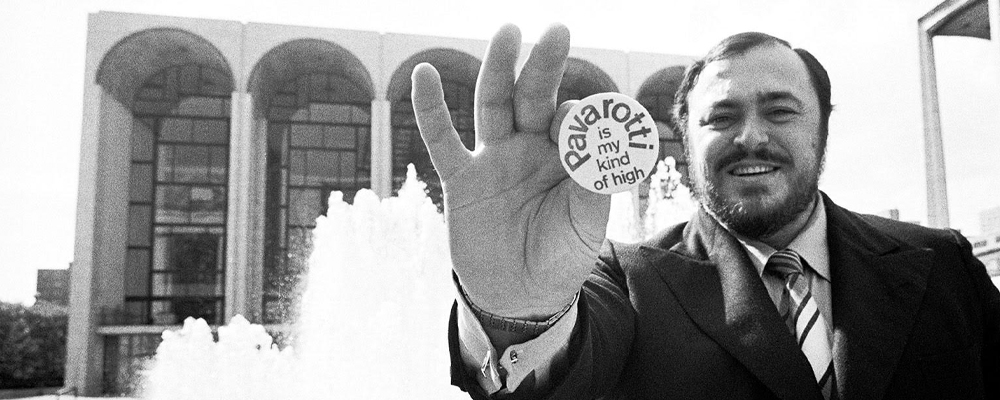Ron Howard Talks ‘Pavarotti,’ Documentary Filmmaking, and His Most Meaningful Projects
Sandra Miska
Ron Howard, one of the most illustrious figures in Hollywood, explores the man behind the voice in his latest directorial work, “Pavarotti.” This inspiring documentary not only gets deep into the the artistry of the great tenor, but also details his extensive humanitarian work. Through archival footage and interviews with his family members, colleagues, and friends such as Bono, the viewer sees different sides of the Luciano Pavarotti, and this moving work traces his life from his humble origins in Italy to his days as one of the biggest musical stars in the world.
Howard recently sat down with Entertainment Voice to discuss his journey in making “Pavarotti” and what he was most surprised to learn about the opera star. He also opened up about his next documentary, “Arrested Development” and other projects that have been the most meaningful during his almost lifelong professional career.
First off, what attracted you to Pavarotti?
I knew about his greatness and genius, and I certainly had respect for opera, without knowing much about it. As I began to explore him as a figure, I began to recognize that people didn’t know a lot about him, just as I didn’t. I felt like I could share real insight into the emotional potential and power of opera through his life, which was operatic in its own way.
What was the most surprising thing you learned about him?
That he wasn’t a prodigy. He obviously had talent. His mother said, “When you sing, it’s something special.” As a grown man, he already was an elementary school teacher. And yet he made that commitment [to sing full time], and it still took six years of training before he could begin to make his mark professionally. That really surprised me.
His personality — it was interesting to me that he was such an extrovert, so gregarious, so full of spirit and life, and so giving in so many ways, and then it was interesting for me to learn how shaped he was by childhood experiences. His near-death trauma, and, of course, being a witness to the horrors of World War II. I think that was very informative. His big, grand pursuit of joy was almost an answer to some of the stresses and challenges that he faced that were so dire throughout his childhood.
I loved how you included the English subtitles to multiple Opera arias. We have all heard most of those songs a million times, but unless you’re a big opera fan, you don’t really know what they’re about.
Honestly, the first thing I did was I started asking for those subtitles. It’s such a reflection of my education here that I was gaining, I saw how powerful and raw and emotional opera really is. It shouldn’t have blown my mind, but it did. I began to see that there were times in his life that he was singing about himself. He was singing about things that he was living through. And I thought that could be a kind of an organizing principle for our film, and we could reflect for audiences both the power and emotion of opera, and the drama of Pavarotti’s journey.
Some of that drama included his extramarital affairs. I feel like we are used to seeing public figures like that become embroiled in those types of scandals. Especially in Europe, people seem accepting of those types of behaviors, but I was taken back to learn about the negative reaction in Italy to Pavarotti’s infidelity. Was that surprising to you?
Again, he was such an icon, and he had presented himself as the consummate family man. In a way, the media was doing a thing that it should do and it likes to do, which is exposés. That was an instance where the choices that he made were complicated because, I think in America [his 39-year marriage to Adua Veroni] would have ended after about eight or ten years. And twenty-some years later, the relationship was broken, and he was, in a way, publicly still held to it, because of how controversial divorce was in Italy at that time.
It was remarkable how you were able to get both of his wives and his adult daughters for interviews, and they all had positive things to say about their husband/father. What was that like, getting everyone onboard and gaining their trusts?
They were willing to participate; I’m not sure they wanted to. But they did want the movie made. Our position was that we wanted to tell a complete story, not just the story of his career, but the story of his life. So [their] interviews were going to be vital to us. I don’t think we would have made the movie had they not been willing to cooperate. They not only shared photos and movies and videos and so forth, but we really needed them to talk. We did not have any control over what they would say, but we wanted their remembrances. I know it was difficult for them.
I think that inadvertently, what they revealed about themselves is very inspiring, because at the end of the day there is not only an acceptance, but also a brand of forgiveness that’s pretty noteworthy and noble. I think there’s a lesson there for all of us. It’s interesting, the regrets that they had were for the period that they had not forgiven him. They allowed a distance to exist, which I’m sure was a two-way street. I’m not sure that Pavarotti was reaching out to them as much as he probably should have. But you can also see the regret on his face in that testimonial home video [filmed by his second wife Nicoletta Mantovani near the end of his life]. I think that it’s the most honest and truthful and raw piece of video we have of him, because he wasn’t on television, he wasn’t selling a record, he wasn’t promoting himself. He was talking to his wife.
As either a producer, director or both, you’ve previously made documentaries about Katy Perry, The Beatles and Jay-Z. They’re musicians from very different genres.
It’s great to know you have fantastic music to offer an audience and to build your story around. I’m working on my first documentary now that is not biographical. It doesn’t involve music. It’s about the aftermath of the fires in Paradise, California that devastated about 95 percent of that little town. We’ve been covering that now for about seven months, that story. And we don’t know what ultimately we will have to say about it. It’s a matter of gathering this raw material and shaping a story when we don’t have music to depend on. It’s another step in a new direction as it relates to documentary filmmaking.
When can we expect to see the final product?
We don’t know yet. Again, it’s a leap of faith, and National Geographic is sponsoring it for us and paying for it. It will be a feature.
If you could do another musical documentary, who would you have in mind?
We have a wishlist of people who might be exciting to explore. [Musicians] are such dynamic individuals, underlining the word “individual.” I find their journeys fascinating and often inspiring.
You’ve been involved in so many different projects throughout your career in different capacities, as an actor, director and producer. I know it’s probably difficult, but it you could pick one that’s been the most meaningful to you, what would it be?
Oh, man. So many. I’d say, as an actor, “The Andy Griffith Show,” because it was my childhood. As a director, probably “Apollo 13,” because it was so challenging to make it and organize the storytelling in a way that audiences would connect with. It was a real adventure to make that film, so that’s meant a lot to me. As a producer, “Arrested Development.” I’m so proud of being a part of that show and it’s just such a blast to be around it.
Can you talk a little bit about “Arrested Development” and how that came about, the show as well as your being the narrator?
I had an idea of doing a show, and this was 15, 16 years ago, that would use the new grammar of reality television. This was about the same time, maybe a little ahead of us, they were doing “The Office” in that sort of faux documentary way in England. But we hadn’t seen that show yet and didn’t know about it. I had a similar idea going. And Mitch Hurwitz loved it and said, “We should make it be a family show. It’s like a new kind of sitcom.” So we started talking about that, and then we started comparing it to “The Simpsons.” “We could could do a live-action version of that chaotic, sort of wild and wily storytelling.” He wrote a great script that was somewhat autobiographical. And there is a banana stand in Mitch Hurwitz’s life.
I had the idea that perhaps we would want narration. Mitch wrote it without that, but then he said, “Let’s try it.” Right before they tested the show, I laid down some temp tracks, with no intention of being the narrator. I wasn’t even sure the narration would work. Mitch called me the next day and he said, “Well, I’ve got some good news, and then some other news that might be good or might be bad. What do you want to hear first?” I said, “The good news.” “The good news is, the show tested really well.” I said, “Well, what’s the news that could be good or bad?” He said, “Well, the narrator tested the highest. So, we need you to be the narrator.” I said, “That is good news. I’ll do that. I’ll do that job, uncredited.”
Can you say if they’ll be another season or not?
I would never say never about “Arrested Development,” but I think it’s highly unlikely, because the cast is so unbelievably busy. And I know one of the great frustrations for Mitch has been how difficult it’s been to just get everybody in scenes together in the way that he would ideally like. I think he’s done a remarkable job, and I’m really glad we had a chance to do one more season and finish up the mystery that he had established with the first Netflix season. I think, certainly everybody is going to take a long hiatus. Looks, the fans are always the ones who keep this show going. We’ll see if after a while there’s a clamoring for it, then everybody loves doing it.
“Pavarotti” opens June 7 in select theaters.

